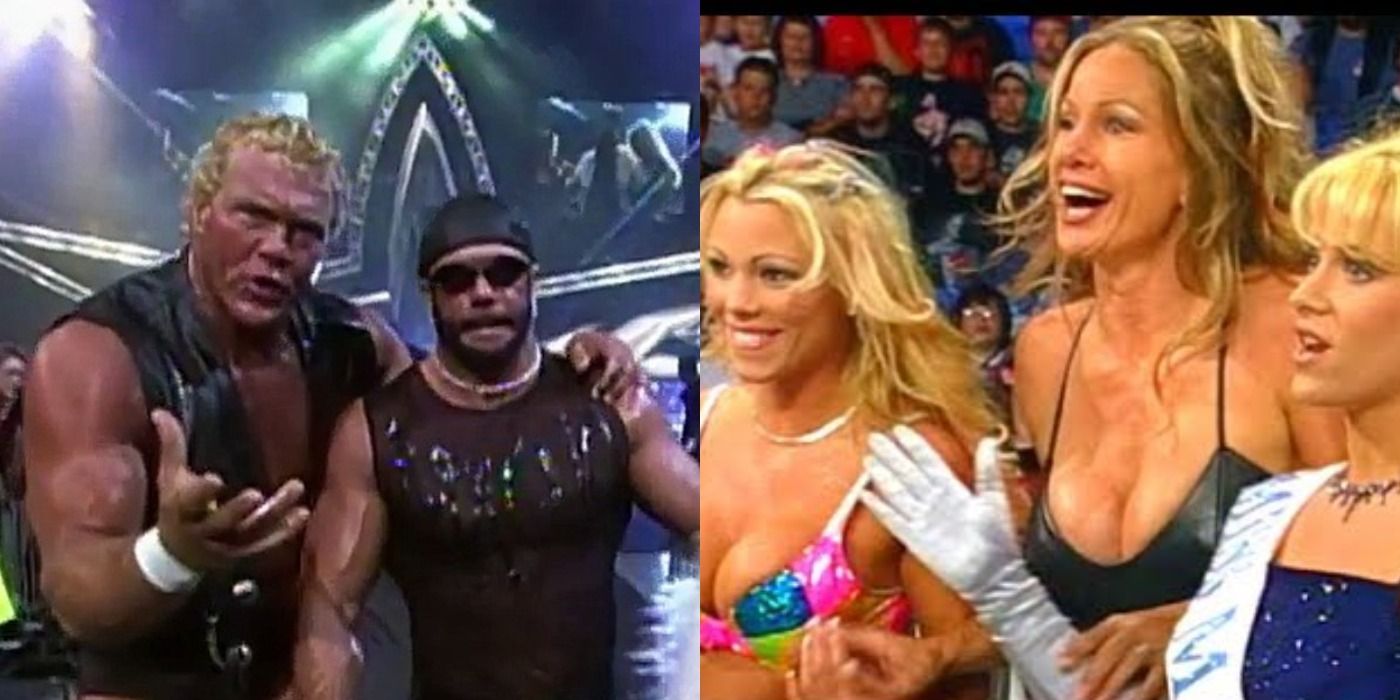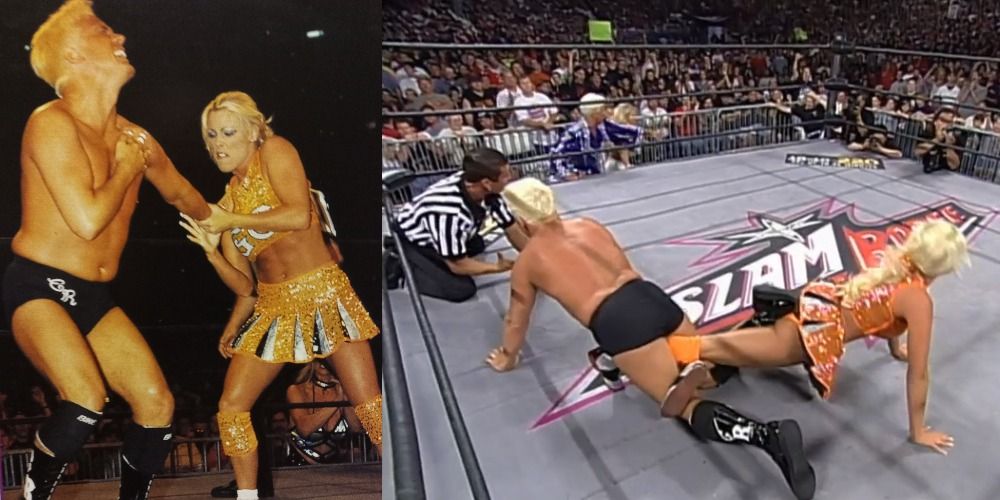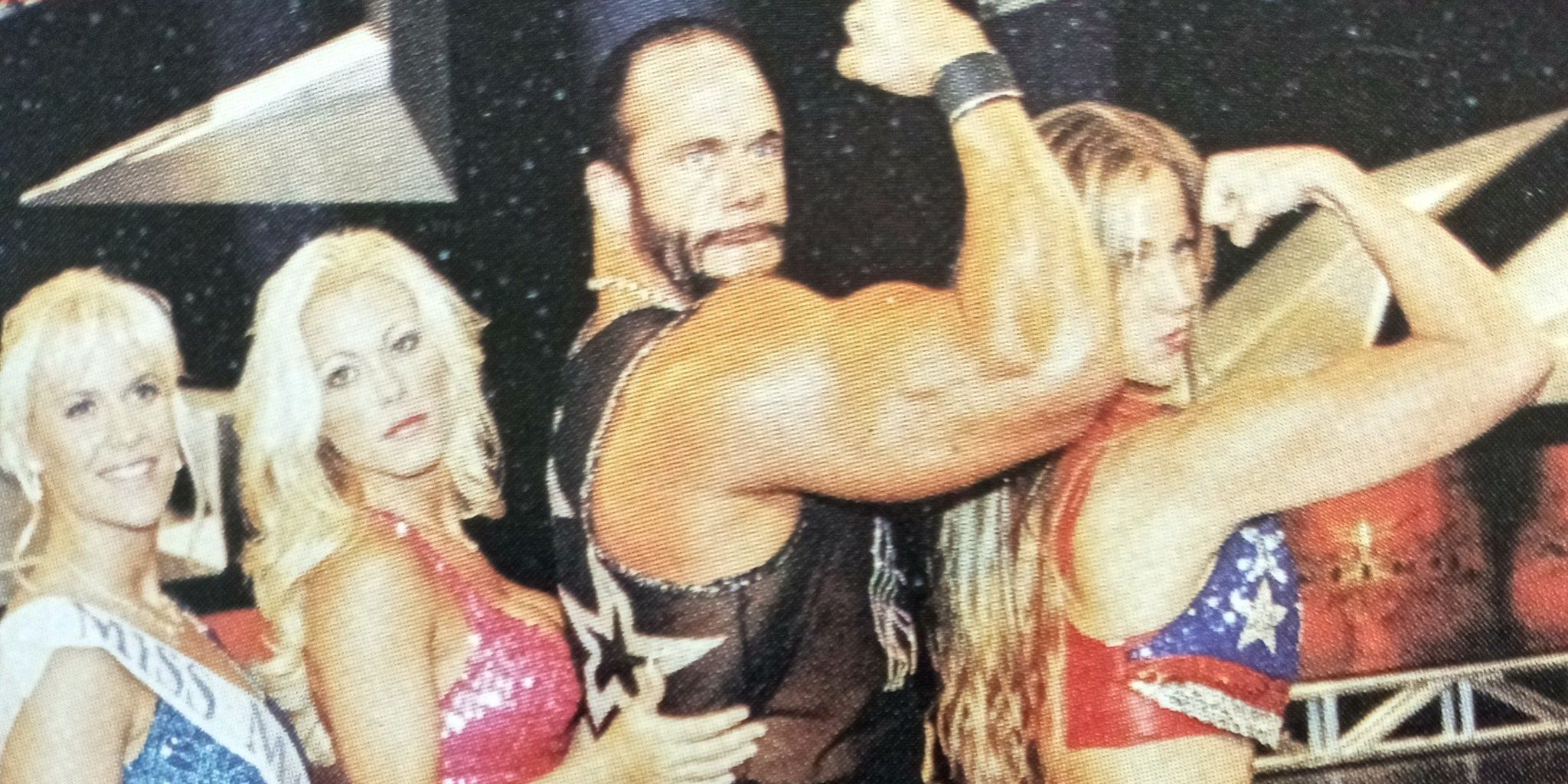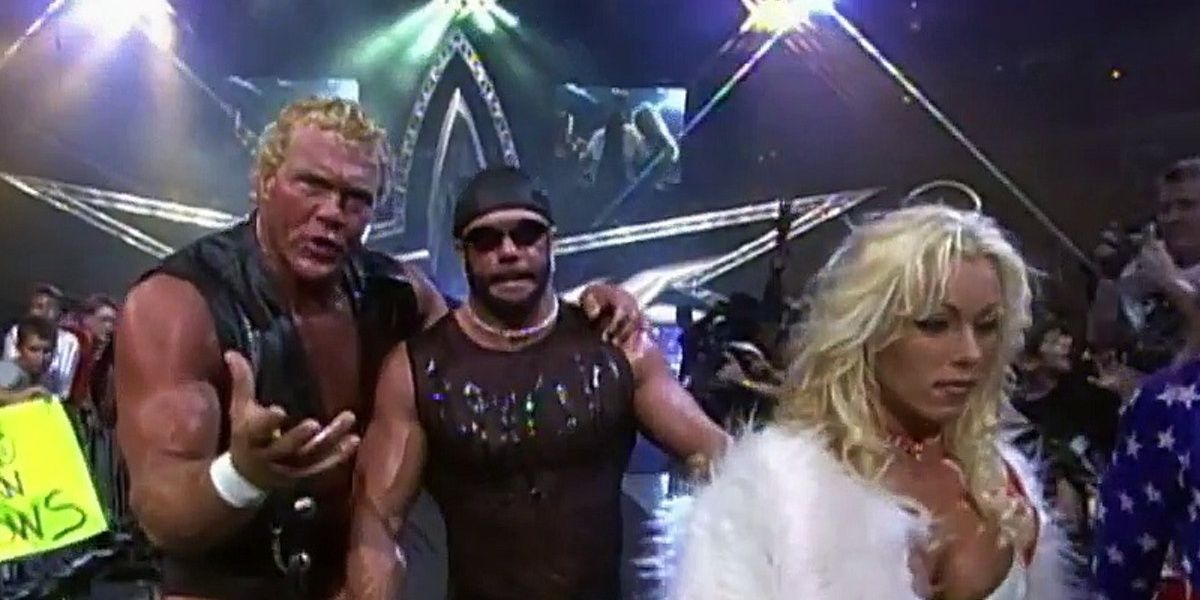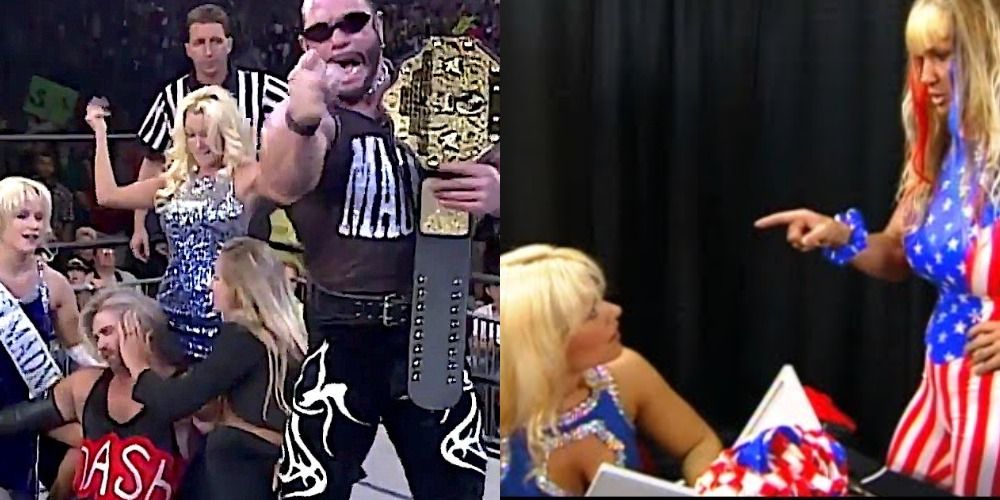There are quite a few reasons for wrestling fans to remember Randy Savage. Despite being smaller in size, he was a sensational in ring performer and an iconic wrestling personality. These talents set up him up to be a major contributor during two of wrestling’s greatest boom periods, during the original Hulkamania run in WWE and for WCW’s New World Order angle. Amidst his many successes, which spanned a roughly fifteen-year period on the truly national level, one of the forgotten pieces of his legacy was a faction known as Team Madness. It was an unusual stable for featuring more female than male talent, and ahead of its time for Madusa and Miss Madness (the eventual Molly Holly) being sound workers whom the Macho Man’s name drew more attention to. The faction was also noteworthy for facilitate the last world title win of Savage's illustrious career.
Valet Gorgeous George Wins Randy Savage Back His Spot On The WCW Roster
The start of the Team Madness Run saw Randy Savage return to WCW with a valet named Gorgeous George on his arm. The Macho Man had purportedly met her when she was working as a dancer in the Tampa Bay area, and when he brought her into the world of wrestling, he gave her the famous wrestling moniker that he had licensed the rights to.
George enjoyed her most famous moment in wrestling when she represented Savage opposite Ric Flair’s proxy, referee Charles Robinson in an unconventional valet vs. referee match, with The Macho Man’s WCW contract on the line. The match over performed as an intense five-minute exhibition far better than anyone would have expected. The success of the match and angle was a good omen for Team Madness.
Madusa And Molly Holly Join The Macho Man
While one might dismiss Team Madness as something of an ego trip for Randy Savage--for the aging superstar to be flanked by no fewer than three beautiful woman—there’s more to the story than that. In particular, there’s the fact that Madusa and Molly Holly were excellent wrestlers.
Madusa had long been ahead of her time, the top female talent in the US in an era when women’s wrestling wasn’t treated with all that much respect. The younger Holly—billed as Miss Madness—was an up and comer, but showed flashes of brilliance that foreshadowed her celebrated run in WWE.
Sid Vicious Joins The Stable
Team Madness peaked when Sid Vicious entered the fold. The women of the stable had been effective in providing outside interference for Randy Savage, but Vicious offered more traditional muscle, not to mention another big name. Savage and Vicious won a tag team match over Kevin Nash and Sting at Bash at the Beach 1999 which, under unconventional rules resulted in a title change, awarding the WCW Championship to Savage.
Perhaps more than anything else, Vicious shored up the status of Team Madness as a proper faction, as opposed The Macho Man simply having a cadre of valets. The fact that his arrival facilitated Savage’s final world title victory was the icing on the cake.
Dissension In The Ranks Dissolves The Team Madness Faction
Like so many things in WCW’s latter years, Team Madness wasn’t built to last. Savage lost the WCW Championship on Nitro the night after he’d won it, and immediately blamed his failings on Madusa and Miss Madness. The two women started feuding with each other, culminating in Savage officially kicking them out of the group. Madusa engaged in intergender matches for much of the months to follow, while Miss Madness turned babyface and worked under the name Mona.
Savage and Sid Vicious moved on to separate storylines, with The Macho Man feuding with Dennis Rodman before fading from WCW television. Meanwhile, Vicious gained momentum with an undefeated streak that laid the foundation for him to feud with Goldberg.
In the end, Team Madness really only operated for about three months, and so it’s reasonable to understand why so few fans remember the group. Nonetheless, it’s the collection of talent that helped Randy Savage win his final world championship, introduced most fans to Molly Holly, and gave Madusa one of her more noteworthy platforms. That’s in addition to offering a stage for Sid Vicious’s return to WCW and the introduction of Gorgeous George. For such a short-lived group, that’s a respectable resume, and more than enough to call them an important piece of late-WCW history.

